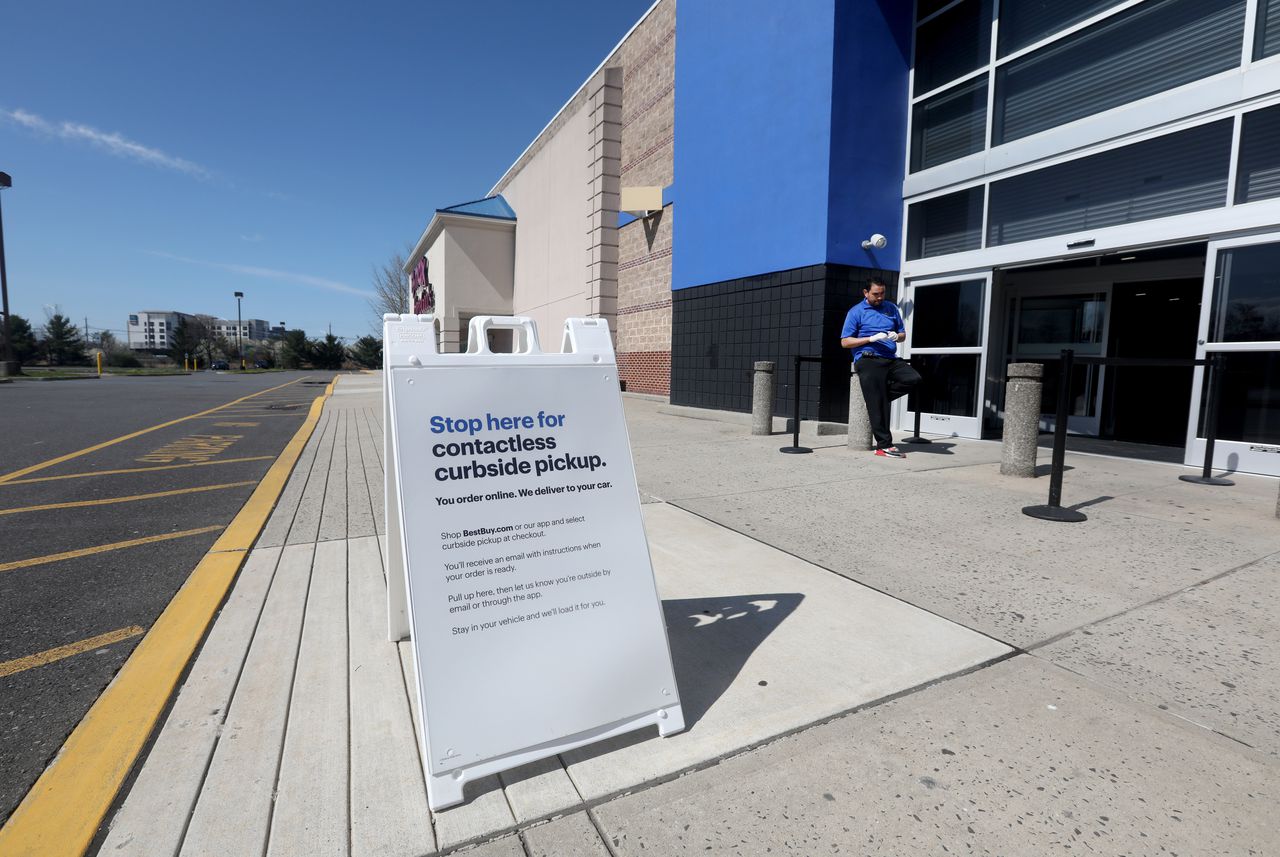New Jersey will allow nonessential businesses to reopen for curbside pickup and nonessential construction to resume, starting Monday morning, as the coronavirus pandemic continues to show signs of slowing in the state, Gov. Phil Murphy announced Wednesday.
The executive order marks the second major move Murphy has made to ease the near-lockdown orders he instituted almost eight weeks ago to fight the virus. He previously lifted closures on state and county parks and golf courses.
It also comes as the state’s economy sputters because of the pandemic, with widespread unemployment and untold revenue losses.
The changes will take effect 6 a.m. Monday.
Murphy’s order also clarifies that drive-in and drive-through events — including drive-in movies and religious services — are permitted in the state, as long as people stay in their cars. That takes effect immediately.
And the governor said the state may soon take more steps to reopen in the coming days, including permitting elective surgeries to resume and giving guidance to beaches.
Murphy said these steps are possible because New Jersey, one of the nation’s coronavirus hotspots, has seen its number of new cases, deaths, and hospitalizations drop after weeks of strict social distancing.
“The data we are seeing gives us confidence that we can begin the careful and responsible restart of our economy — to get people back to work, and to begin to set the stage for the steps to come,” he said during his daily coronavirus briefing in Trenton.
The move comes a day after officials detailed plans for ramping up testing and contact tracing in New Jersey, which Murphy said is critical to have in place as the state reopens.
Murphy also said these steps are the first because businesses and customers can maintain social distancing under these guidelines as the state continues to deal with deaths, cases, and hospitalizations.
“We are not out of the woods yet,” he said. “When compared to other states, we see that New Jersey still bears a significant burden from COVID-19. So keeping up with social distancing is essential as we move forward.”
Nonessential retail stores can allow curbside service, but no customers will be allowed inside retail stores yet, Murphy said. They must place orders in advance.
Murphy thanked residents for following lockdown so far but stressed that gatherings are still banned across the state and that people should “still stay at home as much as possible.”
The governor has yet to give a definitive timeline for easing restrictions further, and some lawmakers and business leaders have pushed him to move more quickly as the economy suffers.
Murphy said the state is “moving slowly and deliberately” on any more changes because “any misstep risks further outbreaks.”
“It’s as basic as this: When public health tells us it is safe to remove a restriction, we’ll remove it,” he said. “There is no light switch we can flip — we can only slowly raise the dimmer.”
Murphy has also said he may have “hard dates” for reopening by the end of the week.
Nonessential businesses have been closed in New Jersey since March 21, when Murphy ordered residents to stay home. He then ordered nonessential construction to stop April 8.
Eateries have been allowed to offer curbside service and essential businesses — such as supermarkets and home improvement stores — have been allowed to stay open with social-distancing restrictions.
Some lawmakers and critics have also called for Murphy to allow other retail businesses to allow customers inside stores with similar guidelines.
But the governor said Wednesday “we’re still in a stay-at-home mode.”
“This is a step in a positive direction,” Murphy said. “I think it’s a responsible one. We just don’t want people congregating.”
Also Wednesday, the state Senate announced its team of economic recovery team will hold a remote public hearing Monday at 11 a.m. to get input from healthcare professionals about safely reopening New Jersey’s economy.
“Hearing from the medical community first will provide the roadmap for the safe re-opening for other crucial business sectors," said state Sen. Paul Sarlo, D-Bergen.
As of Wednesday, New Jersey — a densely populated state of 9 million people— has reported at least 9,702 total deaths attributed to COVID-19, with at least 140,743 total positive tests, since the outbreak started March 4. Only New York has more cases and deaths among U.S. states.
Officials Wednesday reported 197 new deaths and 1,028 new cases.
But Murphy said positive cases have dropped nearly 90% and COVID-19 deaths have decreased more than one-third from their peak.
New Jersey’s 71 hospitals reported 4,226 patients with confirmed or suspected cases of the coronavirus as of Tuesday night. That’s down 48% from the peak in hospitalizations on April 14 and marks a month of steady declines.
Still, Murphy notes that New Jersey is still dealing with larger ratios of new deaths, cases, and hospitalizations compared to three neighboring states (Connecticut, New York, and Pennsylvania) and the nation’s two most populated states (California and Texas).
A Rutgers-Eagleton Poll released Tuesday morning found 66% of New Jersey adults believe the state is lifting restrictions at the right pace, while 19% feel it’s happening too quickly and 16% say it’s moving too slowly.
More than 1 million Garden State residents have filed for unemployment since mid-March and many have been waiting for weeks to get paid and struggled to get through the state’s busy phone and online systems.
In addition, New Jersey’s government is missing massive amounts of tax revenue, and Murphy has warned the state faces a “fiscal disaster” within weeks that could lead to historic public-worker layoffs if the federal government doesn’t approve more direct financial aid.
